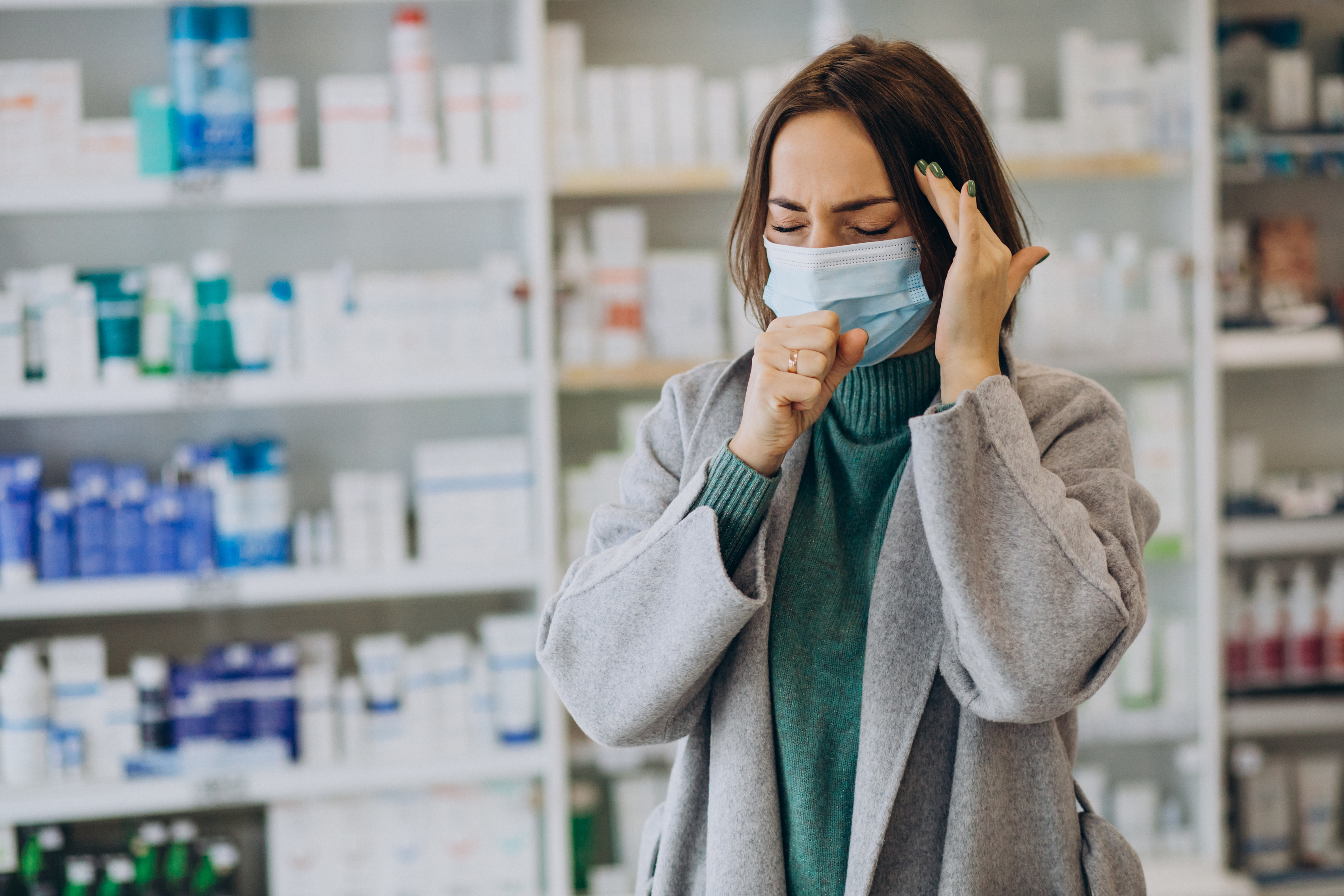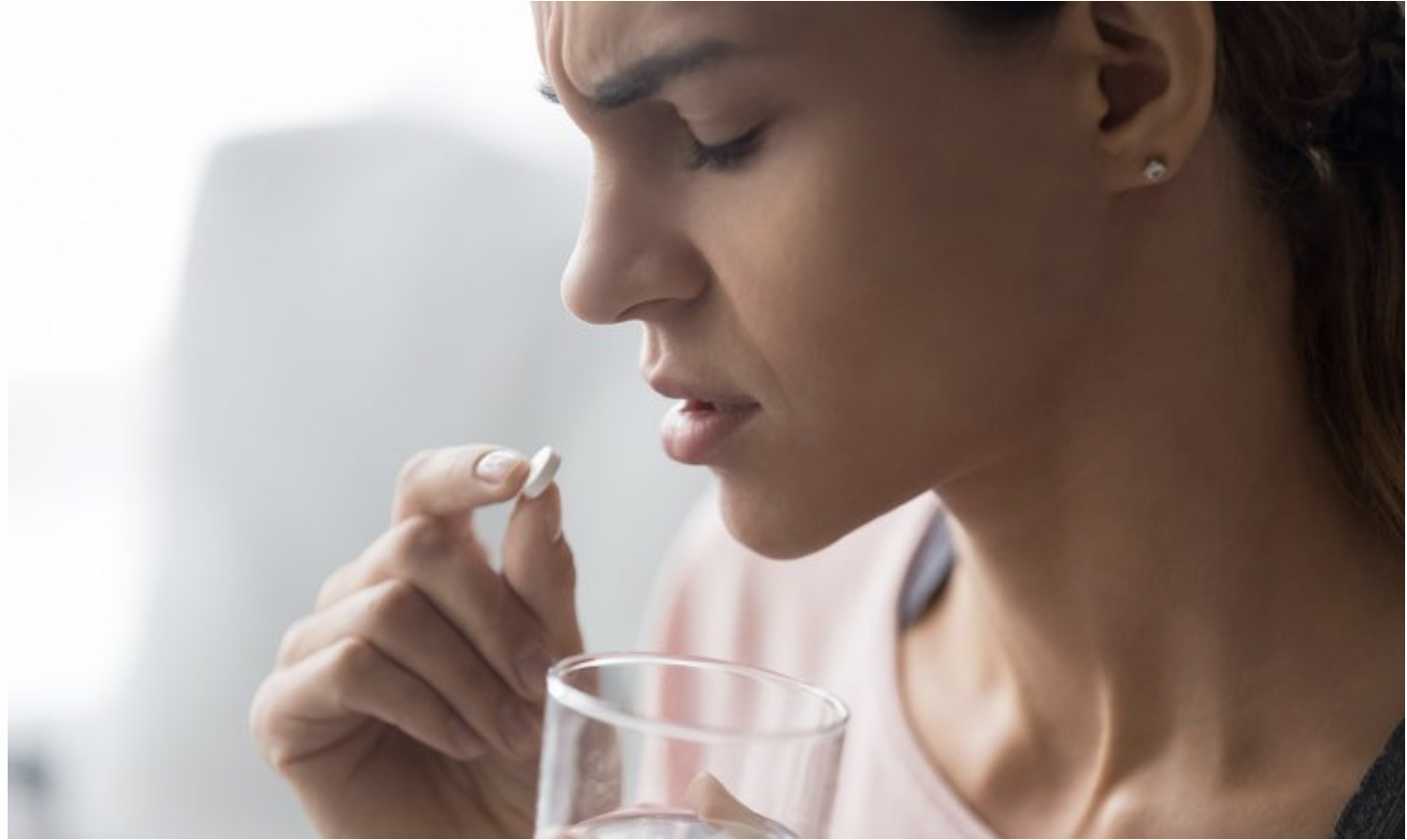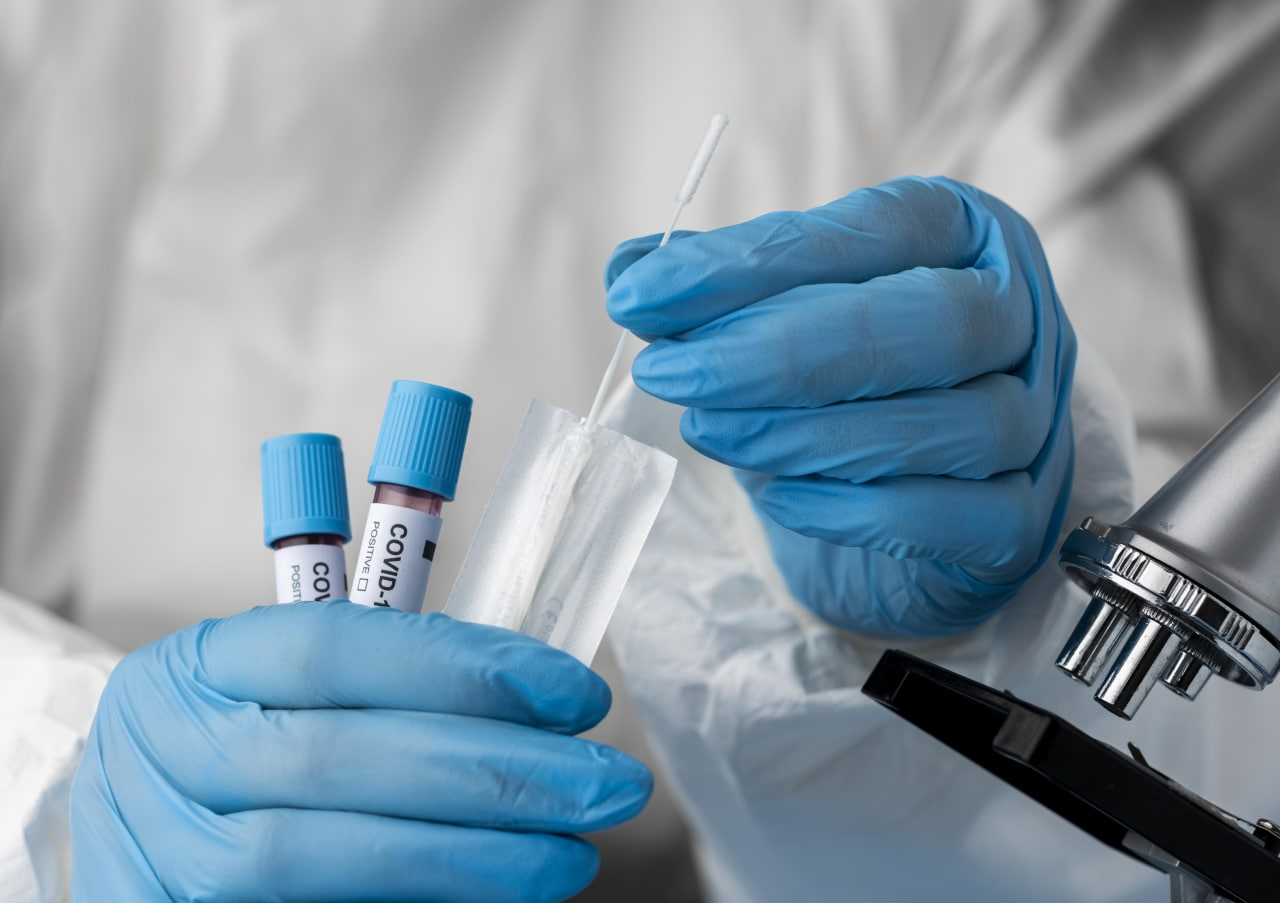5 Common Fall Illnesses: prevention and treatment
Each season apart from climatic features is notorious for a certain distinctive set of diseases. Thus, autumn relates to ARVI and exacerbation of some chronic diseases, which means more respective requests in a pharmacy. We have collected TOP-5 of autumn "complaints" with consulting cheat sheets to facilitate pharmacists’ work in the face of a large number of similar requests.
Why do chronic diseases aggravate in autumn?
Autumn brings:
- High humidity.
- Changes in barometric pressure.
- Low temperature.
- Wind and wind gusts.
After a warm summer such conditions for the body are stressful. It switches on adaptive mechanisms, which leads to a number of changes:
- immune defense decreases;
- the synthesis of endogenous vitamin D drops due to the shorter daylight hours and decreased sun exposure, which is vital for a well-working immune system [1];
- metabolism slows down [2].

Many people feel exhausted and experience apathy and weakness in the off-season - this is how our defense mechanisms work. They switch on a "Saving Mode" to collect and conserve energy for the winter. Evolution has developed this process for survival. Previously, people had to work as much as possible in the summer, and in the winter they had a rest. But nowadays, a person must be active all year round, and biomechanical processes haven’t adapted to this yet.
All the changes mentioned above are a springboard for infectious diseases and exacerbation of chronic diseases. Having interviewed pharmaceutical specialists, we identified 5 common autumn complaints, which people come to a pharmacy for getting advised on.
- Cystitis;
- Arthrosis and arthritis and other rheumatological diseases;
- Peptic ulcer;
- Allergies;
- ARVI.
Cystitis
When it is cold, the chance of experiencing bladder inflammation increases significantly. Such statistics are primarily associated with hypothermia, and women suffer from cystitis most often.
Typical symptoms:
- Pain when urinating;
- Burning and cramps when urinating;
- Constant false urge to urinate;
- Pain above the pubis;
- General symptoms, such as increased body temperature, weakness, fatigue.
Algorithm for advising on cystitis:
- clarify the nature of the complaints;
- specify who the drug is being purchased for (man / woman / child / elderly person);
- find out the symptoms duration;
Situations when advising the customer to see a doctor is imperative:
- blood, turbidity or sediment in urine;
- high temperature combined with dysuric phenomena (it is likely to be pyelonephritis, which requires special medical care). [5]
.jpg)
What drugs can a pharmacist offer?
Nobody else but a doctor can treat cystitis. A pharmacist may only recommend drugs to relieve symptoms for a short period:
|
To reduce urinary tract spasm and relieve dysuria |
antispasmodics (drotaverine) |
|
To reduce the inflammatory process |
herbal uroantiseptics (urolesan, kanefron, phytolysin, etc.) |
Synthetic uroantiseptics (furagin, furamag, nitroxoline, etc.) and antibiotics for a single dose (monural) and course administration (ciprofloxacin, norfloxacin) can prescribed only by a doctor.
Prevention
To prevent cystitis one ought to avoid hypothermia and follow the rules of intimate hygiene strictly (wash with special medications at least twice a day). This is extremely important, as the main cause of cystitis is E. coli, which enters the bladder through the urethra from the anus. [6]
Arthritis and arthrosis
Autumn brings joint problems exacerbation. Pain in the musculoskeletal system most often bothers elderly people, as well as patients with chronic rheumatological diseases.
When advising a customer at a pharmacy, you need to find out:
- the nature of the pain,
- how they are related to physical activity (for example, pain when walking in the joints typifies arthrosis).
Situations when advising the customer to see a doctor is imperative:
Edema in the joints combined with fever.
What drugs can a pharmacist specialist offer?
|
Reducing inflammation and pain relief |
non-steroidal anti-inflammatory drugs for internal and topical application: ibuprofen, nimesulide, diclofenac, indomethacin, etc. ! Before recommending NSAIDs, you must find out if the patient has contraindications: peptic ulcer, gastritis or kidney pathology. [7] |
|
for topical treatment (to improve blood circulation + anti-inflammatory effect) |
ointments, gels and creams based on larkspur, menthol and red pepper |
Peptic ulcer and duodenal ulcer
Recurrence and manifestation of peptic ulcer disease most often occurs in the autumn-spring period. The disease can show itself in the form of:
- hungry pain in the epigastric region;
- stomach heaviness and pain after having eaten;
- heartburn;
- nausea or vomiting;
- sour belching.
Situations when advising the customer to see a doctor is imperative:
When a patient contacts a pharmacy with the symptoms listed above.
What drugs can a pharmacist offer?
|
for an lubricating, anti-inflammatory and mild laxative effect |
flax seeds, alder-based medicines, etc. |
|
In case of heartburn |
antacids |
! It is important to explain that these medications are a temporary measure, and a gastroenterologist will prescribe a full therapy.
Prevention of exacerbations in gastroenterology includes:
- constant keeping the diet;
- basic therapy;
- controlling the disease the dynamics and the therapy effectiveness with fibrogastroduodenoscopy;
- regular gastroenterology check-ups. [8]
Allergic diseases
Spring, summer and autumn bring pollinosis. Allergies are caused by different allergens in each season. The autumn period is typified by the following:
- Weed pollen - the maximum concentration is observed in September;
- Mold in premises. Growth and reproduction takes place in high humidity weather, so the rainy season is the ideal time;
- Fallen leaves - soaked in moisture, they become an ideal environment for mold, which is a strong allergen;
- The dust mite is also active in autumn and contributes to the development of allergic diseases.
In addition to the symptoms of pollinosis (redness and burning in the eyes, swelling of nasal mucosa, lacrimation and rhinorrhea), exacerbations of bronchial asthma, dermatitis, eczema and other diseases of allergic origin are possible in autumn [9].
Situations when advising the customer to see a doctor is imperative:
After finding out the age, comorbidity and complaints it is important to explain to any patient with allergies the importance of seeing a doctor. After all, the most effective treatment is eliminating the cause of hypersensitization, and for this you need to identify the allergen using tests in a clinic.
What drugs can a pharmacist offer?
|
Symptoms eliminated by drugs |
Drug groups |
|
To eliminate the local symptoms of vernal conjunctivitis, rhinitis - nasal congestion, redness and itching in the eyes. |
Sprays and drops with an antihistamine effect (based on cromoglycic acid, levocabastine, etc.) |
|
To reduce swelling, itching, nasal congestion, hives, difficult breathing. |
Antihistamines: cetirizine, loratadine, etc. Preference should be given to drugs with minimal hypnotic effect. |
|
For the temporary relief of symptoms of nasal congestion. |
Sprays or drops with a vasoconstrictor effect: tramazoline, xylometazoline, etc. ! It cannot be used for a long time and often (not more than twice a day for 5 days), since tachyphylaxis may develop. |
|
To reduce the severity of an allergic reaction by reducing the flow of allergens into the bloodstream. They are not used independently for the treatment of allergies, they are used only combined with the main treatment with antihistamines and other agents. |
Sorbents - reduce the absorption of the allergen through the gastrointestinal tract [10] |
ARVI
No matter how tired we are of these "threadbare" respiratory infections, we could not do without them in our chart. They can appear as:
- tonsillitis and / or pharyngitis (the main symptom is sore throat);
- rhinitis and / or sinusitis (runny nose);
- bronchitis and / or tracheitis and / or laryngitis (cough).
General symptoms:
- increased body temperature;
- headache;
- aching bones and muscles;
- feeling unwell;
- fatigue.
With such symptoms, patients most often seek help at a pharmacy. When providing assistance, a pharmacist should not forget that now we are living in a period of pandemic and being alert to the coronavirus is a must [3].
Algorithm of counseling for ARVI in the context of the COVID-19 pandemic
- Identify complaints.
- Ask the client whether he is buying medicines for himself or for another person.
- Find out the age and gender (if the drugs are taken by a woman, check if she is pregnant).
- Find out the duration of the symptoms, what methods have already been tried to treat and the result;
- In case of complaints of cough, clarify the nature of the cough:
- dry or wet;
- type of sputum: rusty, glassy, green, white, whether it contains blood;
- whether the cough is accompanied by chest pain;
- whether there is shortness of breath.
- Find out if there are any intercurrent deseases (diseases of stomach, liver, kidneys, etc.).
- Clarify if there may occur any allergic reactions.
Situations when advising the customer to see a doctor is imperative:
- The patient is under a year old or over 75 years old.
- The temperature over 38 degrees lasts more than 3 days.
- Severe symptoms persist for more than 3 days.
- Self-treatment has not produced expected results.
- Fatigue and shortness of breath (may be a sign of coronavirus infection) [4].
What drugs can a pharmacist offer?
Mild ARVI, according to clinical guidelines, should be treated just symptomatically. Therefore, it would be better to advise drugs based on the "symptom - solution" approach:
|
symptom |
solution |
|
sore throat |
medications with an antiseptic and anti-inflammatory effect for topical use (rinsing solutions or sprays based on iodine, chlorhexidine, hexetidine, benzydamine hydrochloride, lozenges with dequaline chloride, lysozyme, etc.); drugs with a combined composition, for example, hexetidine + choline salicylate + chlorobutanol hemihydrate. |
|
fever |
paracetamol or ibuprofen; to releive overall symptoms - powders for the preparation of solutions (fervex, coldrex, teraflu, etc.). |
|
cough |
non-narcotic antitussive drugs of central action (drugs with codeine), libexin, herbal remedies based on the herb thermopsis. to facilitate discharge - ambroxol, acetylcysteine, medications on ivy leaves, licorice, etc. |
|
nasal congestion |
two stages of therapy: rinse the nose with saline to clear the discharge; after cleaning, instill drops or spray with a vasoconstrictor effect (oxymetazoline, xylometazoline). |
Prevention
It is important to advise the patient that vaccination is a key method of preventing severe respiratory tract infections. WHO recommends vaccinating against seasonal flu, pneumococcus and coronavirus once a year.
A doctor alone can prescribe antiviral drugs for prevention and treatment. To prevent acute respiratory viral infections, a pharmacist may advise taking vitamins C and D, drugs with an immunostimulatory effect of plant origin, herbal medicines and antiviral and immunomodulatory herbal teas. [4]
Seasonal illnesses are, on the one hand, a big problem for patients and for healthcare professionals. On the other hand, knowing and revising their features from time to time, we can prepare for them in advance - patients can undergo a course of treatment, and pharmacies can offer the necessary range of products and regularly use algorithms for advising and informing.
References:
- Kustybaeva D. I., Semenova E. A. Impact of vitamin D on immune function. International student scientific bulletin 2020; 2: 23-23.
- Semenyuk V.P., Rudkovsky E.I. Seasonal and annual rhythms influence on the human body. Post-event reports of the 48th international scientific and technical conference of teachers and students, dedicated to the 50th anniversary of the university. 2015; 70-72.
- Sadovnikova I.I. Seasonal problems and ways to overcome them. Regular issues of "RMZh" 12/22/2011; 31: 1954.
- Bihe K.F., Ofitserova Yu.A., Dianova D.G. PATIENTS’ AWARENESS OF USING DRUGS FOR SYMPTOMATIC PHARMACOTHERAPY OF ACUTE RESPIRATORY VIRAL INFECTIONS. East European Scientific Journal 2016; 6 (2): 10-12.
- Apolikhin O. I., Florian V., Voitko D. A., Zolotukhin O. V., Kurt N., Nazarenko D. G., ... Shaderkin I. A. EPIDEMIOLOGICAL STUDY OF CYSTITIS INCIDENCE IN WOMEN OF VORONEZH REGION. Experimental and Clinical Urology 2021; 1: 10-18.
- Laurent O.B., Sinyakova L.A., Kosova I.V. Chronic recurrent cystitis in women: treatment and prevention. Consilium medicum 2004; 6 (7): 460-465.
- Sidorov V. V., Koryukina I. P., Tuev A. V., Kolesnikov Yu. T., Popova E. P., Stepanova L. V., Polishchuk O. V. METHOD OF TREATMENT FOR ARTHRITIS AND ARTHROSIS 2005.
- Leibova I. M. ASPECTS OF TODAY’S COURSE OF UNCOMPLICATED PEPTIC ULCER DISEASES. Man and Medicine of the XXI Century: Traditions, Innovations and Priorities of Russian Science 2006; 187-189.
- Morozova S.V. Autumn allergies: important aspects for an otorhinolaryngologist. RMJ 2015; 23: 1384-1386.
- Nenasheva N.M. Allergic rhinitis therapy: which antihistamine to choose? FGBOU DPO RMANPO of the Ministry of Health of Russia, Moscow. Russian medical journal 05/20/2015; 9: 514.







